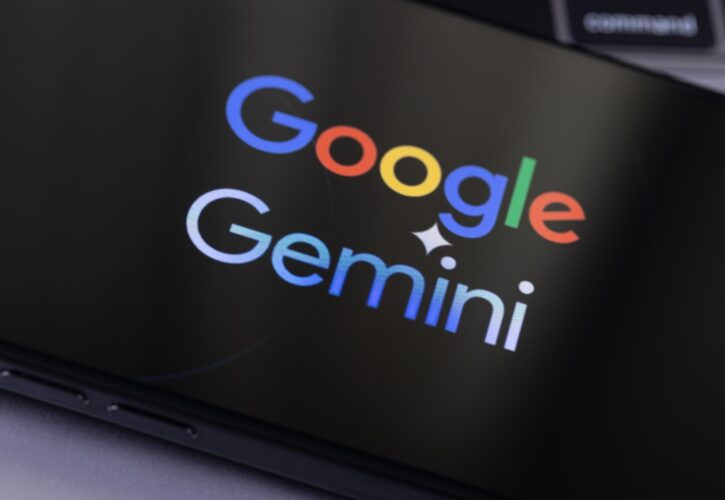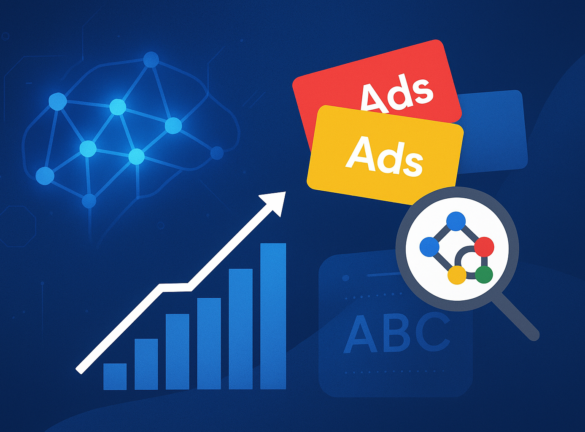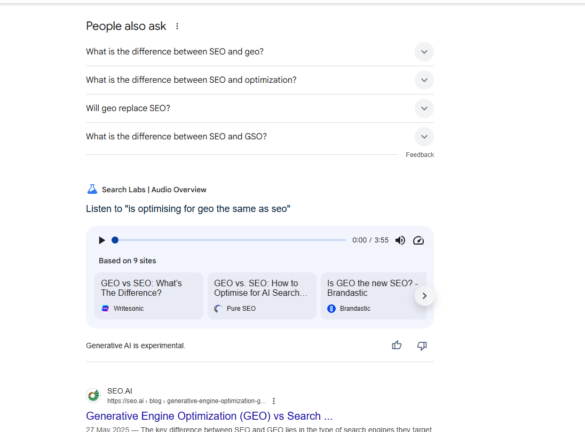
Google Gemini Personalisation: The Next Evolution in AI Search
Google has announced a major leap forward in AI-powered search with the next phase of its Gemini AI – Gemini Personalisation. This update allows Gemini to provide highly tailored search responses based on user history, behaviour, and preferences. For SEO managers, this shift presents both new opportunities and challenges in optimising content for AI-driven search experiences.
What Is Gemini?
Google announced the launch of its latest chatbot “Gemini” back in December 2023. Gemini is Google’s multi-model AI model, powered by a large language model and designed to provide enhanced search results with a better understanding of user queries to generate more context-aware responses. With its latest update, Gemini Personalisation, the AI will adapt search answers based on a user’s previous interactions, making results more relevant and customised.
How Will Gemini Become Personalised?
The new Gemini App and Google’s broader AI ecosystem will use Gemini and Search History to refine user experiences. With this view of previous search history, and user engagement, Gemini will be able to deliver the following:
- More accurate answers tailored to individual users.
- Predictive search recommendations based on browsing habits.
- Context-aware responses that are based on previous searches and engagement to better understand user-intent.
The SEO Impact of Gemini Personalisation
For search marketers, Gemini’s ability to personalise responses could change traditional SEO practices in several ways:
- User-Centric SEO Becomes Essential
Search results will be influenced by individual preferences, making general ranking strategies less effective. Marketers must focus on creating content that engages and retains users over multiple interactions. - Shift Toward Conversational and Intent-Based Content
With Gemini’s ability to understand queries better with previous searches in mind, websites should consider optimising for longer-tail questions and queries to appear within context-rich searches rather than relying solely on broad keywords. - Click-Through Rate (CTR) Challenges
As AI-generated responses become more sophisticated, users might get their answers directly from Google potentially reducing organic traffic to websites. However, businesses with strong brand recognition and valuable, in-depth content may see increased engagement.
Will Users Be Able to Opt-In?
Yes, Google emphasises user control, allowing individuals to opt-in or -out of Gemini Personalisation. This ensures privacy-conscious users have the choice to disable history-based recommendations.
Example Use Cases for Gemini Personalisation
- E-Commerce: If a user frequently searches for sustainable fashion brands, Gemini may prioritise eco-friendly product recommendations in future searches.
- Travel & Hospitality: A user researching European destinations may receive personalised itinerary suggestions based on past searches.
- Local Search: Repeated searches for vegan restaurants could lead Gemini to suggest nearby vegan-friendly places even before a user asks.
Final Thoughts: The Future of AI in Search
The evolution of Gemini Personalisation marks a pivotal moment in SEO. AI-powered search engines are shifting away from static blue link rankings toward dynamic experiences tailored to user intent. Marketers must adapt by focusing on user intent rather than broader search volume keywords, optimising for conversational queries, and leveraging first-party data to remain visible in personalised search results.
Stay Ahead with ROAST
At ROAST, we specialise in helping businesses navigate the evolving landscape of AI-driven search. Get in touch to explore how AI-powered SEO strategies can keep your brand at the top of search results.
Q&A: Breaking Down Google Gemini Personalisation
When will Gemini Personalisation be rolled out?
Google has not provided a fixed date, but initial testing is underway with a wider rollout expected later this year.
Where can users expect to see Gemini Personalisation?
Gemini Personalisation will be integrated into Google Search, the Gemini App, and other AI-driven Google services including YouTube and Photos in future.
Will Gemini replace Google Assistant?
Google has announced that they will be upgrading more users to Gemini, from Google Assistant, over the year. This includes devices such as headphones, watches and cars.
What’s an example of how Gemini Personalisation will be used?
A frequent traveller might receive AI-suggested destinations based on their past searches.
What is the impact of Gemini Personalisation on SEO?
SEO strategies must focus on user engagement, content relevance, and conversational queries to remain competitive in AI-driven search results.
ROAST’s Stance
SEO Account Manager James George ‘Google’s announcement of the latest experiment by Gemini follows a move towards a more personalised search landscape. This move was arguably foreseen by SEO’s with the launch of AI Overviews back in June 2024. This new development highlights a shift from the traditional ‘ranking’ tactics of old SEO, instead pointing to a user-centric content experience, one that is tailored to specific user needs and written by experts. While it is recommended to expand our focus to niche and specific user-context queries, we should not completely shift away from optimisation for broader search queries where traffic opportunities are larger.’
Senior Organic Performance Executive Rainier Deglon adds, ‘Gemini’s capability to access and analyse previous user search history and engagement can act as a remarketing touchpoint for brands to users who are more likely in-market. Take a software brand for example: if a user searches for a query such as ‘Which HMI software should I get?’, having previously interacted with a particular software brand, we may see increased visibility for said brand in AI overviews and search.’






